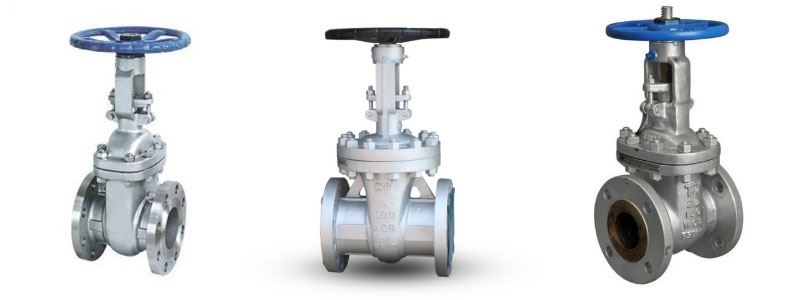The Essential Guide to Fluid Control Systems for Manufacturers

In the realm of manufacturing, managing the flow of various fluids with precision is crucial. Whether it's ensuring the proper mixture of ingredients in pharmaceuticals or maintaining the right temperature in metal fabrication, fluid control systems play a pivotal role.
This guide dives deep into the workings, benefits, and advancements in fluid control technology, providing manufacturers with essential insights to optimize their operations.
Understanding Fluid Control Systems
What are Fluid Control Systems?
Fluid control systems are engineered assemblies that manage the flow and properties of liquids and gases during manufacturing processes. These systems are integral to ensuring the desired outcomes in production through accurate manipulation of fluids.
Key Components:
Adding to the key components of fluid control systems, here are more elements that play crucial roles in effective fluid management:
Actuators: Devices used to operate a valve or adjust its position, ensuring precise control of fluid flow. They can be pneumatic, hydraulic, or electric.
Controllers: These systems use input from sensors to make adjustments in real-time, maintaining the desired flow, pressure, and temperature conditions.
Filters: Remove impurities and contaminants from fluids to prevent damage to machinery and ensure product quality. Filters are essential for prolonging the lifespan of the system and maintaining efficiency.
Meters: Devices that measure the amount of fluid that moves through the system, providing vital data for monitoring and optimizing performance.
Regulators: Maintain a constant output pressure regardless of changes in the input pressure and demand, ensuring stable operations across various processes.
Gauges: Instruments that display the pressure or flow rate in a system, allowing operators to monitor and adjust settings manually if necessary.
These components work together to create a comprehensive fluid control system that ensures efficiency, accuracy, and reliability in manufacturing processes. Each part is crucial for different aspects of fluid management and helps in maintaining the overall effectiveness of the system.
Key Technologies in Fluid Control
Technological advancements play a significant role in enhancing fluid control systems. Automation and real-time data analytics are at the forefront, improving both accuracy and efficiency.
Automation: Reduces human error and increases consistency in fluid handling.
Sensor Technology: Provides precise readings that help in making informed adjustments to the flow and pressure.
Real-Time Monitoring: Ensures systems operate within set parameters, alerting to any discrepancies immediately.
Benefits of Optimized Fluid Control
Manufacturers that invest in advanced fluid control systems see significant improvements across various aspects of their operations:
Efficiency and Speed: Streamlined processes lead to faster production rates.
Cost Reduction: Efficient systems use less energy and reduce waste, lowering operational costs.
Safety and Compliance: Advanced systems help in adhering to industry regulations and safety standards.
Challenges in Fluid Management
Despite the benefits, manufacturers face several challenges that can impact the efficiency and effectiveness of fluid control systems:
Complex Fluids: Managing fluids with varying viscosities and compositions requires sophisticated equipment and expertise.
Scaling: Expanding production capacity often necessitates a redesign of fluid control systems.
Maintenance: Regular upkeep is necessary to prevent breakdowns and ensure longevity.
Case Studies
Success and Savings:
Pharmaceutical Company: Implementation of automated valves resulted in a 20% increase in production efficiency.
Chemical Plant: Upgrading to a sensor-equipped system reduced waste by 15%, significantly lowering costs.
Automotive Manufacturer: By refining their fluid control setup, they achieved a 10% cut in downtime.
These examples demonstrate how tailored fluid control solutions can lead to substantial improvements in manufacturing processes.
Future Trends in Fluid Control
The future of fluid control looks promising with the integration of technology trends that aim to further enhance system capabilities:
Predictive Analytics: Using AI to predict system failures and maintenance needs.
Sustainability: Developing systems that minimize environmental impact.
IoT Integration: Connecting fluid control systems with other manufacturing systems for improved data sharing and automation.
Choosing the Right Fluid Control System
Selecting an appropriate fluid control system is crucial for achieving desired results in valve manufacturers. Here are some factors to consider:
Fluid Type and Volume: Ensure the system can handle the specific type of fluid and the volume required.
Operational Environment: Consider factors like temperature and potential chemical exposures.
Brand and Technology Comparison: Evaluate different brands and choose technology that fits the specific needs of the operation.
Conclusion
Fluid control systems are indispensable in the manufacturing sector. With the right technology and setup, manufacturers can significantly enhance their productivity and efficiency. Investing in modern fluid control systems is not just about upgrading equipment—it's about taking a step toward future-ready manufacturing.
- Industry
- Art
- Causes
- Crafts
- Dance
- Drinks
- Film
- Fitness
- Food
- Games
- Gardening
- Health
- Home
- Literature
- Music
- Networking
- Other
- Party
- Religion
- Shopping
- Sports
- Theater
- Wellness
- News


